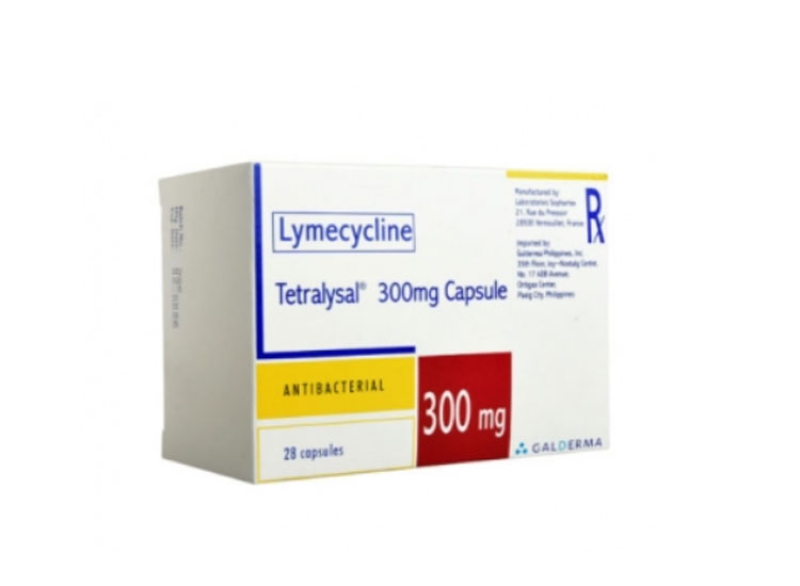Lymecycline Capsules

* Images for illustrative purposes only
* Brand supplied may vary depending on stock availability
Same-day Service Available
Same-day service available for additional £10, conditions apply.

* Images for illustrative purposes only
* Brand supplied may vary depending on stock availability
Same-day service available for additional £10, conditions apply.
No appointment or long waiting times
Your information always remains private
All our doctors & pharmacists are qualified & based in the UK
Dispensed by our UK partner pharmacies


Choose from our treatment options or speak to the in-store pharmacist for advice

Complete our free online medical consultation to be reviewed by our Clinical Team

We will notify you when your medication is ready for collection
Lymecycline is an antibacterial medication used to treat infections caused by bacteria. It is one of a group of antibiotics used to treat different types of infection including acne. This treatment is most suited to those experiencing comedones, nodules or cysts as part of their acne. It could be 6 weeks before you start to see a change in your acne.Lymecycline is taken as a tablet and may be prescribed to be taken over several weeks or months.
Lymecycline works by controlling the amount of bacteria that lives on your body. It works by stopping bacteria from growing and reproducing, especially the bacteria that causes acne. This bacteria is called Propionibacterium acnes. It feeds on oils produced by your skin and then creates waste which can irritate the skin, creating the pimples and spots we know as acne.
Lymecycline is normally prescribed for 8 to 12 weeks and can take a while to work. You may start to see some improvement after 1 or 2 weeks but it is important to continue to take Lymecycline as prescribed. When it is used to treat acne, Lymecycline is prescribed with a topical treatment which include either Epiduo or Differin.
You would expect to see improvement of your acne after 2-5 weeks of daily use, with the maximum benefit being seen in around 8-12 weeks. Treatment should only be continued up to a maximum of 12 weeks.
Lymecycline should be taken once a day (preferably in the morning) with water. It should be swallowed whole with a glass of water. You can take food at the same time as you take Lymecycline.
Milk and other dairy products may affect the way in which the body absorbs Lymecycline but studies show that a moderate amount of milk is not likely to be a problem.
Your clinician will tell you how long it is safe for you to take Lymecycline. Normally you will be prescribed Lymecycline for 8 to 12 weeks. It can take some time to work and may be prescribed for longer if your acne is more severe. As with other antibiotics, long term use of Lymecycline is not usually recommended, and therefore it's important to adhere to the recommended length of treatment as advised by your clinician.
If you forget to take your medicine, take it as soon as you remember, unless it's nearly time for your next dose. In this case, just leave out the missed dose and take your next dose at the usual time. Never take an extra dose to make up for a forgotten one. And never take 2 doses at the same time.
Medicines and their possible side effects can affect individual people in different ways. The following are some of the side effects that are known to be associated with this medicine. Just because a side effect is stated here, it does not mean that all people using this medicine will experience that or any side effect.
Lymecycline may cause the following common side effects:
Uncommon side effects include:
For full information on side effects and correct use, see the patient information leaflet. If any side effects concern you, or you are experiencing any of the side effects mentioned in the patient information leaflet whilst taking this medication, please contact our clinical team or speak to your GP.
On rare occasions, Lymecycline can have serious side effects. If you get any of the following symptoms stop it immediately and tell your doctor urgently:
You should inform your clinician if you:
Lymecycline is not suitable for pregnant women as it may affect their unborn child. It may also cause liver problems for you if you are pregnant. Lymecycline is also not considered suitable for breastfeeding mothers as it can be passed through breast milk to your child.
Get emergency medical help if you have signs of an allergic reaction to this medication. These include:
It is important that you let us know which prescription, over-the-counter medicines and recreational drugs you are currently taking. You must also tell us about any other medical conditions that you currently have (or had in the past). This will help us ensure the prescribed medication is safe and appropriate for you to take.
For full information on warnings, medication interactions and contraindications, refer to the Patient Information Leaflet. Please read all packaging and the Patient Information Leaflet before taking any new medicine and inform our clinical team or your GP of medicines you are taking or intend to take.





